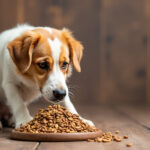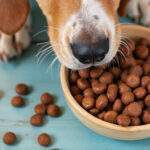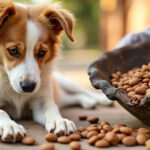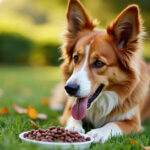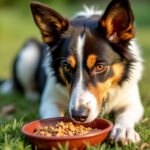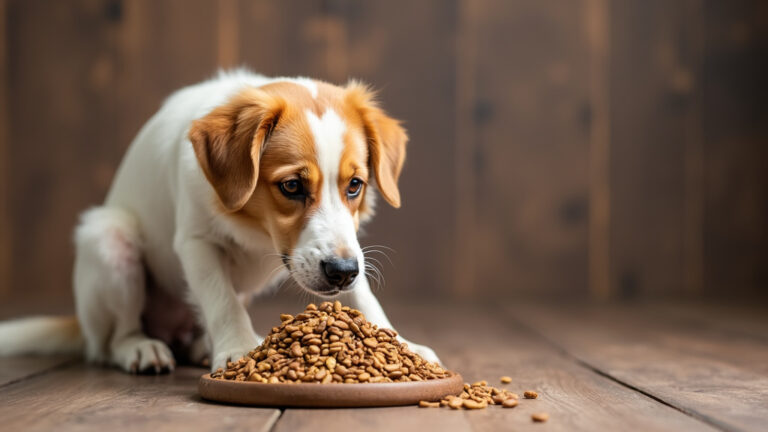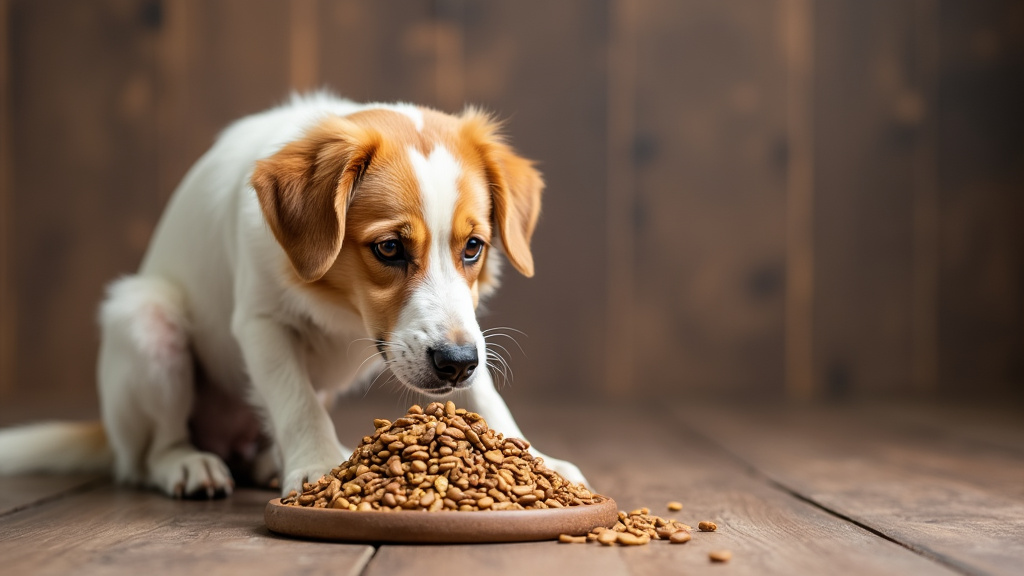German Shepherds need a balanced diet to fuel their active lifestyle and address their specific health requirements. High-quality protein, moderate fat, and key nutrients like glucosamine and chondroitin are essential for keeping these dogs in top shape.
Table of Contents
ToggleKey Takeaways:
- German Shepherds flourish on diets containing 25-30% premium protein and 12-16% fat
- A proper balance of calcium and phosphorus, plus vital vitamins and minerals, supports bone growth and overall wellness
- Breed-specific formulas and top-tier commercial options such as Royal Canin and Purina Pro Plan are ideal choices
- Adjusting the diet to the dog’s age is critical, with dedicated puppy food recommended until 12-24 months old
- Tackling common health issues through diet, like adding glucosamine and chondroitin for joint support, can significantly benefit German Shepherds
Nutritional Essentials for German Shepherds
Protein and Fat Balance
German Shepherds thrive on a diet rich in high-quality protein, making up 25-30% of their meals. I recommend choosing foods with beef, chicken, or fish as primary protein sources. These breeds also benefit from moderate fat content (12-16%) to support energy levels and maintain healthy skin.
Vital Nutrients for Health
For optimal bone development, look for foods with balanced calcium and phosphorus. Essential vitamins and minerals like A, D, E, B vitamins, and zinc are crucial for overall health. I suggest selecting foods with chelated minerals for better absorption. To support joint health, especially important for this active breed, opt for foods containing glucosamine and chondroitin supplements.
Top Dog Food Choices for German Shepherds
Breed-Specific and High-Quality Commercial Options
I’ve found several excellent dog food choices for German Shepherds. Royal Canin offers breed-specific formulas for both adult and puppy German Shepherds, addressing their unique nutritional needs. For high-quality commercial options, Purina Pro Plan is a reliable choice. Orijen Dog Food provides a grain-free formula with 43% protein, while Dr. Gary’s Best Breed Holistic German Dry Dog Food offers a grain-inclusive option with 33% protein.
Fresh and Raw Alternatives
For those interested in fresh or raw diets, Nom Nom Fresh (35% protein) and Ollie Lamb Recipe are great options. These foods focus on key features crucial for German Shepherds:
- Joint health support
- Digestive support
- Coat health
- High digestibility
By choosing any of these options, you’ll ensure your German Shepherd gets the nutrition they need to thrive.
Tailoring Diet to Your German Shepherd’s Life Stage
Puppy Nutrition
German Shepherd puppies need specialized puppy food until they’re 12-24 months old. This crucial period shapes their growth and development. I recommend high-quality options like Royal Canin German Shepherd Puppy, Hill’s Science Diet Large Breed Puppy, or Purina Pro Plan Large Breed Puppy. These formulas provide the right balance of nutrients for your growing pup.
Adult Feeding Strategies
As your German Shepherd matures, their dietary needs shift. Adult dogs require a balanced diet that supports their energy levels and promotes joint health. There are several dietary types to consider:
- Dry kibble: Offers dental benefits by helping to clean teeth
- Wet food: Provides higher moisture content, which can be beneficial for hydration
- Raw diet: Some owners report benefits, but it’s important to research and consult with a vet
Each option has its pros and cons, so it’s essential to choose what works best for your dog’s specific needs. Remember, the right diet can significantly impact your German Shepherd’s health and longevity. Always consult with your vet before making major changes to your dog’s diet, especially when transitioning between life stages.
Addressing German Shepherd Health Concerns Through Diet
Tailoring Nutrition for Optimal Health
I’ll focus on key dietary elements for German Shepherds’ well-being. For digestive health, opt for foods with easily digestible proteins and high fiber content. These support nutrient absorption and maintain a healthy digestive tract. To address joint issues common in the breed, look for foods enriched with glucosamine and chondroitin. These compounds can help maintain joint flexibility and reduce discomfort. For Shepherds with sensitive stomachs or skin problems, consider specialized formulas that include:
- Omega-3 fatty acids for skin health
- Limited ingredient diets to minimize allergens
- Probiotics for gut health
By choosing foods that target these specific health concerns, you’ll help your German Shepherd thrive. Remember, always consult with your vet before making significant changes to your dog’s diet.
Homemade and Raw Diet Options
Homemade Food Essentials
Creating homemade meals for your German Shepherd can be rewarding. I recommend focusing on lean proteins, complex carbs, and veggies. Don’t forget to add a calcium supplement and fish oil for optimal health. These ingredients provide a balanced diet tailored to your dog’s needs.
Raw Diet Considerations
Raw diets have gained popularity, offering potential health benefits. If you’re considering this option, source ingredients from reliable farms. Here are key points to remember:
- Careful meal planning is crucial
- Protein variety is essential
- Balance organs and muscle meat
- Include bone for calcium
Always consult a vet or nutritionist before starting any new diet. They’ll ensure your German Shepherd gets the right nutrients in the correct proportions, keeping them healthy and happy.
Feeding Tips and Best Practices for German Shepherds
Establishing a Feeding Routine
I’ve found that consistent feeding schedules are crucial for German Shepherds. Set meal times and stick to them daily. This helps regulate digestion and prevents overeating. Portion control is key; I recommend measuring food accurately to maintain a healthy weight. When switching foods, I always transition gradually over 7-10 days, mixing old and new food to avoid upset stomachs. Don’t forget regular vet check-ups to assess your dog’s nutritional needs as they age. These visits ensure your German Shepherd’s diet aligns with their health status and activity level. By following these practices, you’ll keep your furry friend healthy and happy for years to come.
Sources:
JustAnswer
Chewy
Dog Food Advisor
Happy Dog Training
German Shepherd Puppies NC
Frequently Asked Questions
How much protein should a German Shepherd’s diet contain?
German Shepherds thrive on a diet containing 25-30% high-quality protein.
What are good protein sources for German Shepherds?
Beef, chicken, and fish are recommended primary protein sources for German Shepherds.
How much fat should be in a German Shepherd’s diet?
German Shepherds benefit from a moderate fat content of 12-16% in their diet.
What nutrients are important for German Shepherds?
Balanced calcium and phosphorus, vitamins A, D, E, B vitamins, zinc, glucosamine, and chondroitin are crucial nutrients for German Shepherds.
Are there breed-specific dog foods for German Shepherds?
Yes, Royal Canin offers breed-specific formulas for both adult and puppy German Shepherds.
How long should German Shepherd puppies eat puppy food?
German Shepherd puppies should eat specialized puppy food until they’re 12-24 months old.
What dietary options are available for adult German Shepherds?
Adult German Shepherds can be fed dry kibble, wet food, or a raw diet, each with its own benefits.
How can diet help address common health concerns in German Shepherds?
Foods with easily digestible proteins, high fiber content, glucosamine, chondroitin, omega-3 fatty acids, and probiotics can help address digestive, joint, and skin issues in German Shepherds.
Is it safe to feed German Shepherds a homemade diet?
Homemade diets can be safe and rewarding if properly balanced with lean proteins, complex carbs, veggies, and necessary supplements like calcium and fish oil.
What should I consider when feeding my German Shepherd a raw diet?
When considering a raw diet, focus on sourcing ingredients from reliable farms, careful meal planning, protein variety, balancing organs and muscle meat, and including bone for calcium. Always consult a vet or nutritionist before starting.




